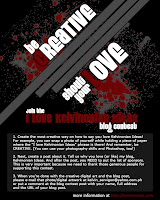Roland Emmerich Tackles Shakespearean Mystery in "Anonymous"
Best known as the director of the epic blockbusters “Independence Day,” “The Day After Tomorrow” and “2012,” Roland Emmerich now takes on the mystery genre in Columbia Pictures' acclaimed and gripping thriller “Anonymous.”
Set in the political snake-pit of Elizabethan England, “Anonymous” speculates on an issue that has for centuries intrigued academics and brilliant minds such as Mark Twain, Charles Dickens, and Sigmund Freud, namely: who actually created the body of work credited to William Shakespeare?
Experts have debated, books have been written, and scholars have devoted their lives to protecting or debunking theories surrounding the authorship of the most renowned works in English literature. “Anonymous” poses one possible answer, focusing on a time when scandalous political intrigue, illicit romances in the Royal Court, and the schemes of greedy nobles lusting for the power of the throne were brought to light in the most unlikely of places: the London stage.
To be shown soon exclusively at Ayala Malls Cinemas (Glorietta 4, Greenbelt 3 and Trinoma), “Anonymous” stars Rhys Ifans, Vanessa Redgrave, Joely Richardson, David Thewlis, Xavier Samuel, Sebastian Armesto, Rafe Spall, Edward Hogg, Jamie Campbell Bower, and Derek Jacobi.
The Shakespeare authorship question is a debate that started over one hundred years ago surrounding the identity of the works traditionally attributed to the bearded Bard from Stratford-Upon-Avon, William Shakespeare. Was he really the genius behind Hamlet’s tragic life, Romeo’s burning love, and Lady Macbeth’s plaguing guilt? Could the intellectual behind literature’s most brilliant characters be this very ordinary man from Stratford?
So little is known about the man from Stratford that many find it impossible to believe that the son of an illiterate tradesman was the author of such literary masterpieces as “The Merchant of Venice,” “King Lear,” and “Henry V.” His education from a village school could never have provided Shakespeare with a vocabulary extensive enough to write the most talked about literature in the world and there is no proof that he travelled to foreign lands let alone learnt to speak their native tongues. The only written documentation historians can ascribe to Shakespeare is several signatures on official documents with at least six different spellings (Shaksp, Shakspe, Shakesper, Shakespere, Shakspere and Shakspeare).
Aside from the plays attributed to him, there are no manuscripts, letters, journals or poems accredited to Shakespeare, which is quite astonishing, considering this was his legacy. His death in 1616 was met with silence, unlike other celebrated writers of his time, and his illiterate wife and children were bequeathed only his “second best bed” – no money – and even more shockingly, his will mentions no books or manuscripts of any kind.
“Anti-Stratfordians,” those that believe there is reasonable doubt that Shakespeare is the real author of the works, include literary greats, teachers, writers, world-renowned actors, directors and scholars such as Sigmund Freud, Orson Welles, Charlie Chaplin, Mark Twain, Ralph Waldo Emerson, Walt Whitman, Sir Derek Jacobi, and Sir John Gielgud. Whilst some believe in group theories (i.e. that a collective group of writers is responsible for the works), others favor singular writers such as Edward De Vere – the Earl of Oxford, Francis Bacon, or Christopher Marlowe.
Oxford (played in the film by Rhys Ifans) is perhaps the leading alternate candidate within anti-Stratfordian circles due to the remarkable concurrences between the nobleman and the scribe. There are many significant facts to support Oxfordian arguments that simply cannot be debunked by Stratfordians, among them that Oxford took a 16-month tour of the Continent which took him to all to of the cities in Italy with which Shakespeare evinces an easy familiarity, among them Padua, Milan, Verona, Mantua, Florence, and Siena. Another is that “Hamlet” eerily parallels Oxford’s life in an almost autobiographical form, depicting his father-in-law William Cecil as Polonius and his daughter, Anne Cecil, being Ophelia; the Queen herself, on whom Gertrude is modeled, was a surrogate mother to Oxford from the age of twelve and later became his lover. Was it a pure coincidence that Oxford’s annotated copy of the Geneva Bible marks passages that were used by Shakespeare or that Oxford’s nickname was “spear shaker?”
In 1987, US Supreme Court Justices John Paul Stevens, William Brennan, and Harry Blackmun held a mock trial on the authorship. Justice Brennan, the Senior Justice on the case, ruled that the Earl of Oxford did not meet the burden of proof required under the law to claim the authorship, however, Justice Harry Blackmun added that whilst this conclusion was the legal answer, he was doubtful it was the correct answer.
Until such time that there is conclusive evidence or definite proof to support any one theory, theoretically there is no right or wrong conclusion to this debate. However, one important question remains. As long as these masterpieces live on in our cultural conscience, does it really matter who Shakespeare was?














Comments
Post a Comment